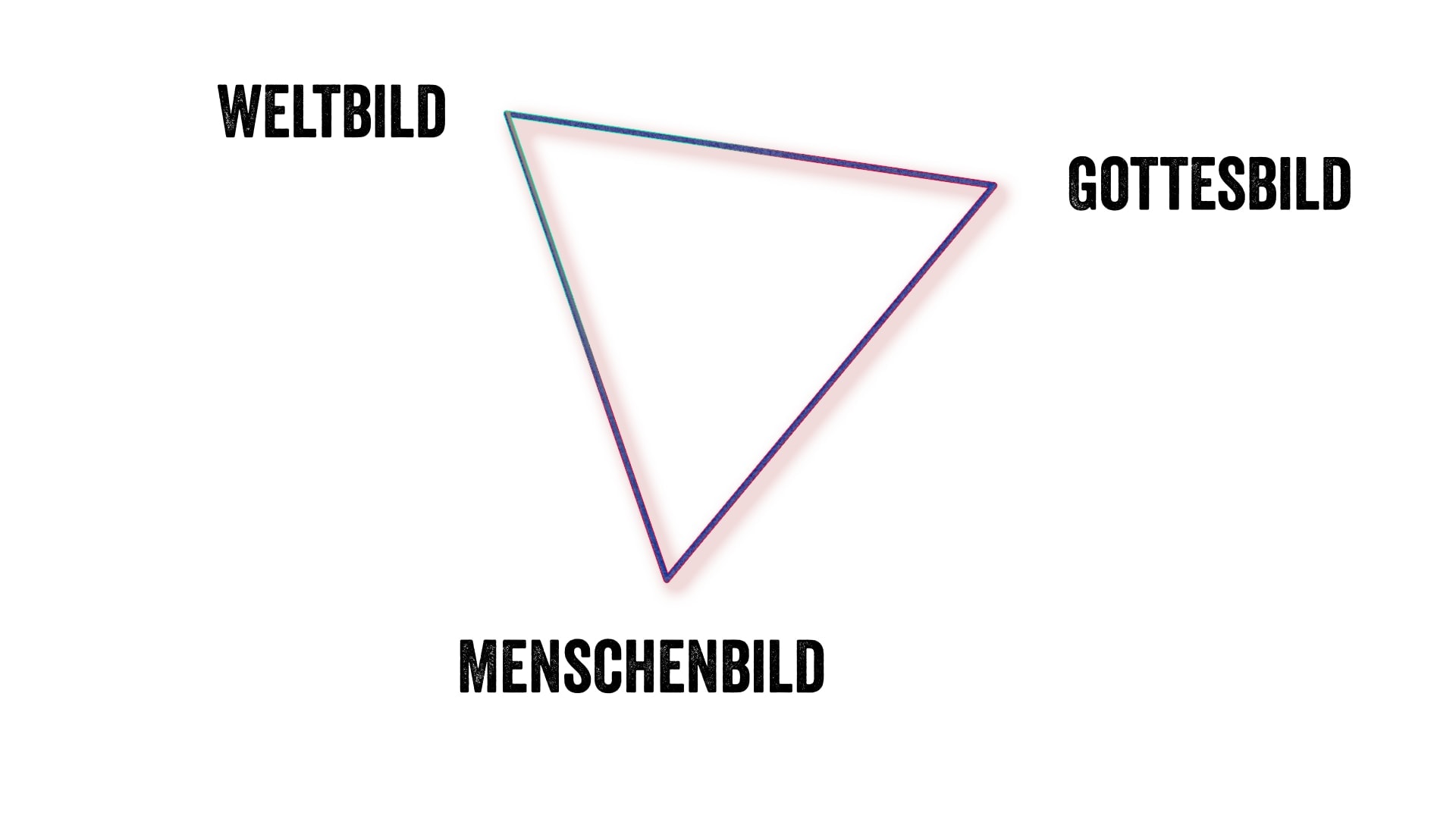If someone changes his image of God, this will have a profound effect on his further life. The same is true for understanding society and for any kind of relationship. How naturally this will rub off on an understanding of God. World view, human view and God view belong together.
These three always belong together: Worldview, image of God and image of man. If we change the meaning of one of these three, this will logically affect the other two points.
In the context of this consideration it is irrelevant whether someone believes in God or not, or which world view is represented approximately. If someone does not believe in God, then this “image of God” will naturally be transferred to the image of the world and the image of man. Likewise, a worldview, such as one shaped by ideology or politics, will have a direct impact on human relationships, appreciation, concern, or an understanding of God. This interdependence is in and of itself completely value-free. The insight, however, is valuable. It allows us to look at our own being and becoming, and it allows us to ask why we think in a broader context.
It is amazing when someone finds a living faith through hearing the gospel or reading the Bible. When God touches a person’s heart, not only does his understanding of God change, but at the same time his worldview and view of humanity change as well. Paul writes that whoever is in Christ is thereby a new creation (2 Cor. 5:17). Something is changing. It is not about empty lip service, but about a changed life. This has an effect. Those who come to a living faith and can describe God’s love and grace from their own experience will make their own faith effective through love (Gal 5:6). Then love is his changed or deepened attitude toward life. Or in other words: His view of man and his view of the world receive a new or deeper orientation through his image of God.
Unfortunately, not everything is always positive. Those who have had only miserable experiences with people will have trouble maintaining a positive worldview or image of God. For our feeling, these things are always very close together. Bad experiences can have a lasting effect on our (spiritual) health. If, for example, one’s own father or mother was never available, always absent, perhaps even rejecting or violent, how can a healthy image of God develop?
Or what about the effects of a heaven and hell doctrine? What kind of image of God is that? Such an image of God does not pass anyone by without a trace. It changes the view of man and the world just as when one realizes liberatingly that God is once Savior of all men (1Tim 4,9-11). These are enormous contrasts. Life is shaped by these things. Anyone who has grown up with a punishing God who demands justice that cannot be fulfilled for all eternity and who inflicts endless punishment and eternal torment for this, how can a healthy view of humanity arise? This has an impact not only on personal life, but also on the community and, ultimately, on society. The self-perception of a community (the “official” doctrine) is unfortunately not always congruent with the reservations, experienced insecurities and fears of the members. Or in other words, there is an incongruence, whereby worldview, image of God and image of man as well as one’s own self-image do not match.
What we believe and think is not without consequences. It is important to have a healthy view of man, the world and especially God. These three things are always related. Hard lessons make hard hearts. Experienced abuse (whether religious, sexual or emotional) leaves a devastating mark on the lives of the people affected. Precisely because it has such consequences for our understanding, our well-being, our confidence and our outlook, we should take a close look at what shapes our view of man, our view of the world and our view of God. This could give our self-image (the sum of all parts in our personal understanding) outlook and depth.
Now, how can a positive and good worldview, image of God and image of man be cultivated and maintained? What does it depend on? That should be a focus for the next installment of this short article series.
Questions for a joint deepening
- Can you understand this connection between worldview, image of God and image of man? Why (not)?
- Is the gospel of God’s grace helpful for a liberating consideration of these things?
- Describe your current image of God. Do you see the traces of it in your life?
- Have you ever been “converted” from a skewed view of man, world, or God?
- What is the purpose of a reversal?
- Is it healthy to ask yourself these questions? Why (not)?


